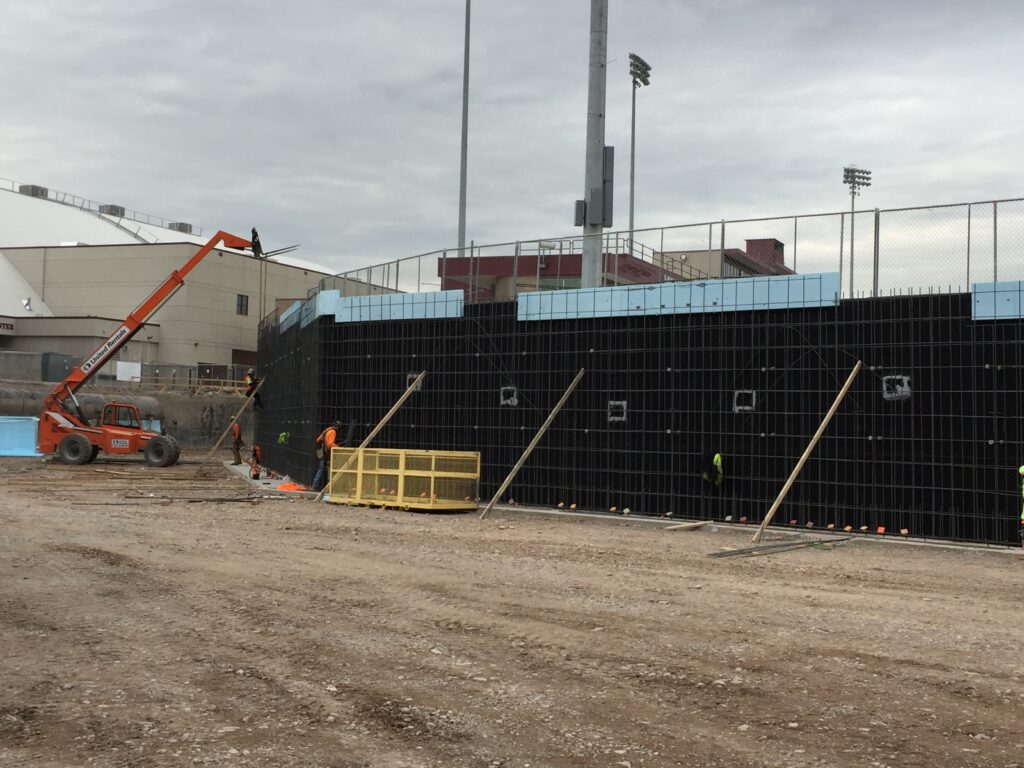Below Grade Waterproofing: Understanding Its Importance and Benefits
Discover the importance of below-grade waterproofing and how it protects your home from water damage, mold, and structural issues. Learn about its benefits and why it's essential for long-term durability.
When it comes to maintaining the integrity and durability of your home, waterproofing is a crucial step that should not be overlooked. One area that is particularly susceptible to water damage is the foundation. Below-grade waterproofing, a method used to protect the foundation of your home from moisture intrusion, is an essential part of any long-term home maintenance strategy. Whether you are building a new home or protecting an existing one, understanding the importance and benefits of below-grade waterproofing is critical to preserving your property.

What Is Below Grade Waterproofing?
Below-grade waterproofing refers to applying a protective barrier to the exterior of a building’s foundation, typically below ground level, to prevent water from seeping into the basement or lower levels of the structure. This type of waterproofing is specifically designed to address the challenges posed by groundwater and hydrostatic pressure, which can cause water to enter the foundation and lead to structural damage, mold, and mildew growth.
The materials used for below-grade waterproofing are typically heavy-duty membranes, sealants, or liquid-applied barriers that help create an impermeable layer around the foundation. This is particularly important in areas with heavy rainfall, high water tables, or frequent flooding. The goal is to prevent water from entering the basement or crawl space and causing extensive damage to your home.
Why Is Below Grade Waterproofing Important?
Protection Against Water Damage: Water can seep through cracks and porous areas in the foundation, leading to basement flooding. Over time, the moisture can weaken the foundation, leading to cracks and structural issues. Below-grade waterproofing prevents water from entering the home, protecting the integrity of your property and preventing costly repairs down the line.
Prevention of Mold and Mildew: Moisture in the basement can create the perfect environment for mold and mildew growth. These fungi thrive in damp, dark areas, and their presence can lead to health problems, especially for those with respiratory issues. Waterproofing ensures that moisture is kept at bay, reducing the likelihood of mold and mildew growth.
Increased Home Value: Homes with properly waterproofed basements or foundations are more desirable to buyers. Knowing that the property is protected from water damage gives potential buyers confidence in the home’s longevity and safety. It can also increase the overall market value of the property.
Energy Efficiency: Moisture can significantly increase humidity levels in the home, making heating and cooling systems work harder. Waterproofing helps control humidity levels in the basement, improving the home's overall energy efficiency and keeping it more comfortable year-round.
Long-Term Cost Savings: Although the upfront cost of below-grade waterproofing can be significant, the long-term benefits far outweigh the initial investment. Preventing water damage, mold, and structural issues can save homeowners thousands of dollars in repairs and insurance claims.
How Below-Grade Waterproofing Works
Depending on the property's specific needs, below-grade waterproofing can be applied using various methods. Common techniques include:
Membrane Systems: These are applied directly to the foundation walls and are designed to provide a seamless, watertight barrier.
Cementitious Coatings: This type of waterproofing uses a cement-based mixture applied to the foundation, creating a thick, durable layer that prevents water penetration.
Bentonite Clay: This material expands when exposed to water, making it an effective barrier against moisture intrusion.
Polyurethane Sealants: These are injected into cracks and joints in the foundation, filling gaps and preventing water from entering.
Choosing the proper method for your home will depend on factors such as the climate, soil conditions, and the extent of the water problem. It’s essential to consult with a professional waterproofing company to determine the best approach for your property.
Finding Basement Waterproofing Near Me in Kalispell
If you're concerned about water intrusion and want to protect your home, finding the right professionals to help with below-grade waterproofing is key. If you're in Kalispell or the surrounding areas, searching for basement waterproofing near me in Kalispell to find local experts specializing in foundation protection is a good idea. Working with a reputable company ensures the job is done correctly and your home is safeguarded against water damage for years.
Conclusion
Below-grade waterproofing is an essential component of any home’s maintenance plan. By understanding its importance and benefits, homeowners can make informed decisions to protect their property from the damaging effects of water intrusion. Investing in waterproofing now can save you money and improve your home's overall health and longevity. Whether you’re building a new home or addressing an existing problem, waterproofing is one investment you don’t want to overlook.























Facebook Conversations